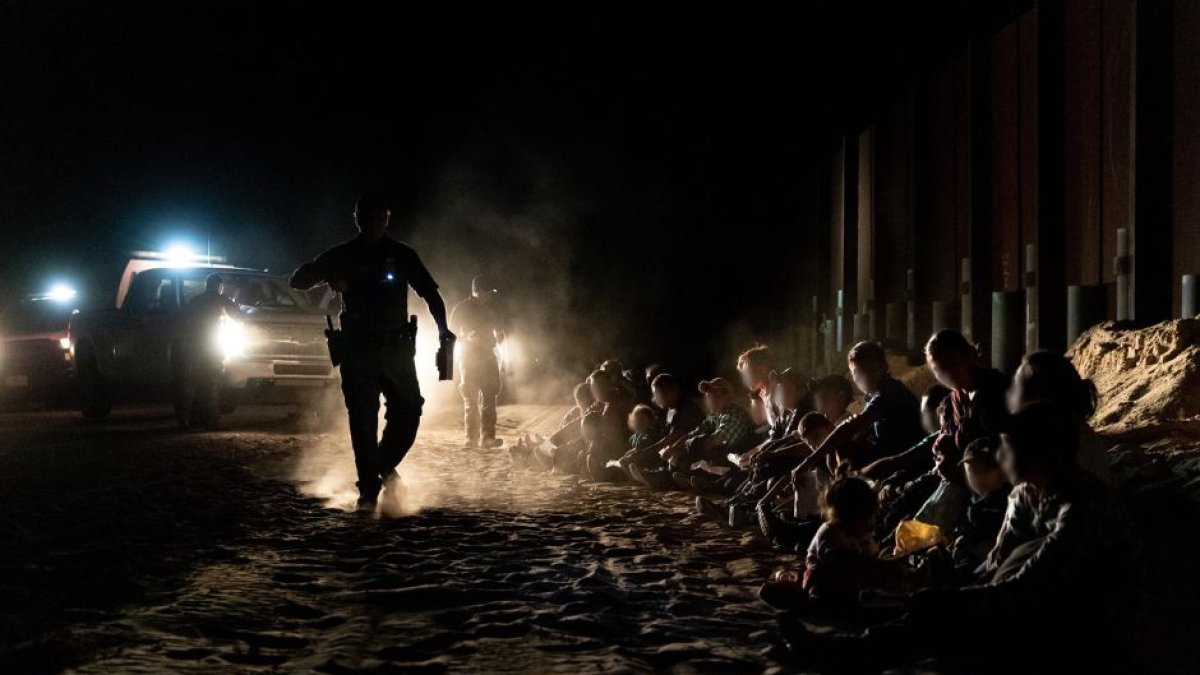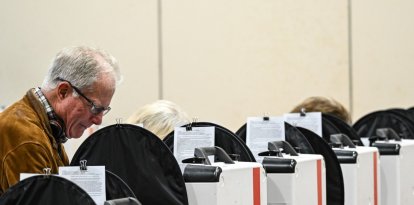Arizona voters will decide whether state or local police can detain illegal immigrants
Following Governor Hobbs' veto of a bill similar to the Texas law, conservatives have sent the proposal to a referendum on November 5.

Border Patrol agents in Yuma guard a group of detained illegal immigrants.(US CBP/Flickr)
The Arizona Legislature controlled by the Republican Party, approved a proposal to ask Grand Canyon State voters during the November 5 elections whether the attempt by an undocumented immigrant to cross the border with Mexico without passing through the ports of entry should be considered a state crime. The initiative moved forward the same day that President Biden signed an executive order "to secure our border and address our broken immigration system."
The proposal, finally approved by a narrow 31-29 in the House of Representatives, gives power to state and local police to arrest those who cross the border without authorization. Additionally, judges in the Grand Canyon State could send such individuals back to their home country. The rule had already been approved on May 22 by the state Senate with a 16 yes to 13 no votes.
Hobbs attacks the initiative of the Arizona Legislature
It is not the first time that the legislature approves a rule of this style. In fact, Governor Katie Hobbs already vetoed the so-called "Border Invasion Act" in March, which had been approved by both chambers. At the time, she accused Republicans of proposing "anti-immigrant legislation" that "demonizes our communities" and "fails to secure our border." As this is a referendum consultation, Hobbs does not have veto power on this occasion, but she harshly attacked HCR2060 via her social networks:
Proposes toughening penalties for fentanyl trafficking
The initiative includes or follows provisions not directly related to immigration, such as criminalizing the sale of fentanyl that causes the death of a person as a crime punishable by up to 10 years in prison. Additionally, it includes access by some government agencies to a federal database to verify a noncitizen's eligibility for benefits.
This is a measure similar to the one approved by Texas a few months ago, and which is in the courts. Following the example of the Lone Star State, Iowa and Oklahoma also approved measures along these lines.
























